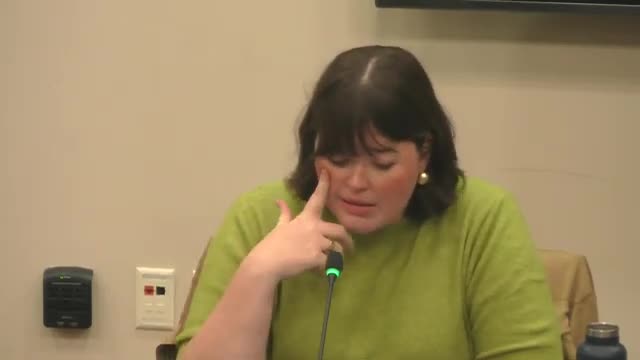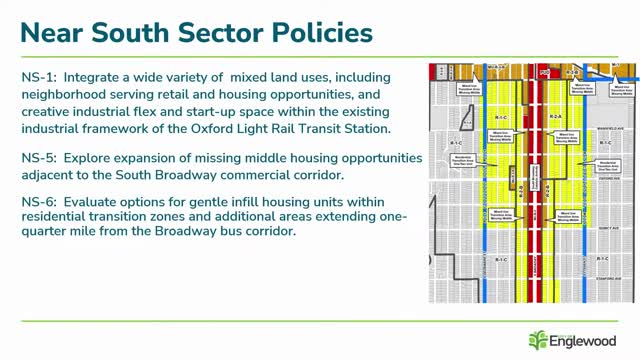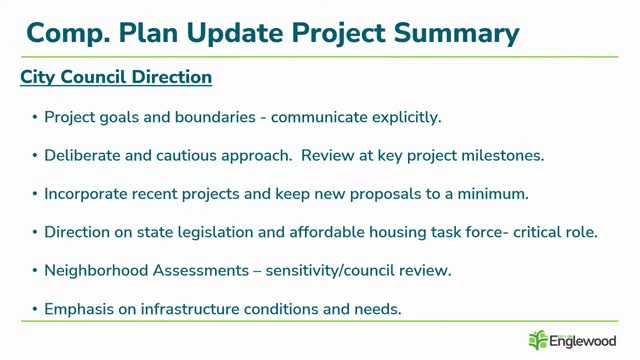Article not found
This article is no longer available. But don't worry—we've gathered other articles that discuss the same topic.

Englewood council enters closed session to discuss potential ground‑lease sale near Civic Center; votes recorded 7–0

Englewood staff outline 2026–2030 capital projects; council told to prioritize as requests exceed available funding

